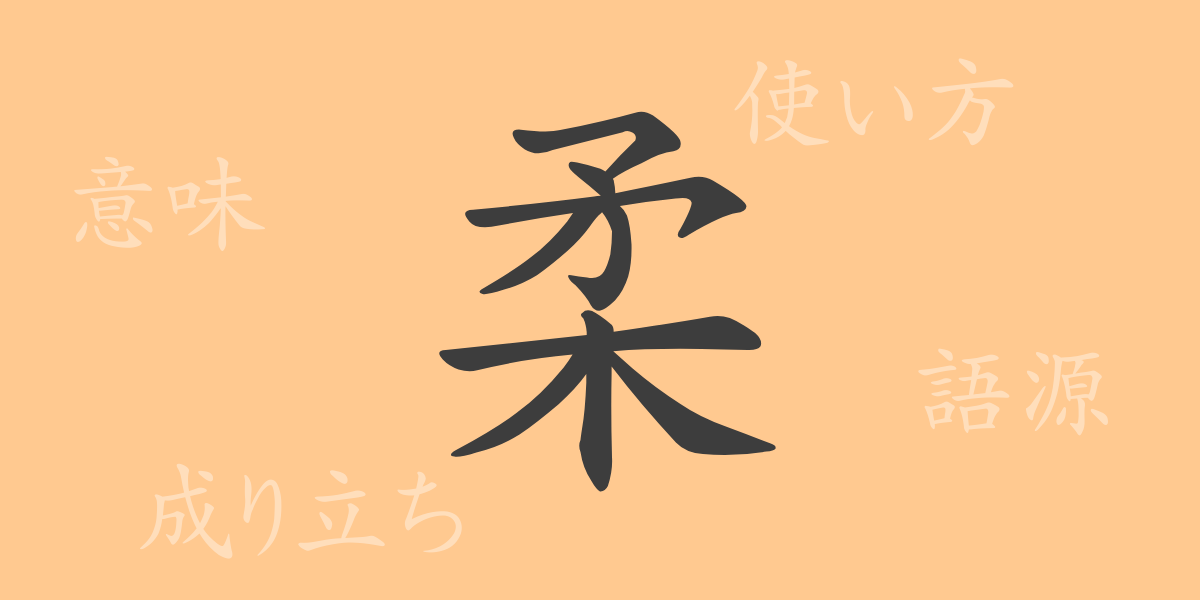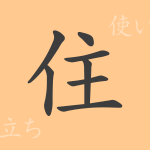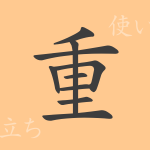In the Japanese language, numerous kanji exist, each with its unique history and meaning. “柔(じゅう, jū)” is a commonly used kanji in Japan, often seen in our daily lives. This article delves into the world of the beautiful kanji “柔(じゅう, jū)”, exploring its origins, meanings, usage, readings, stroke count, and radical. Additionally, we will introduce idioms and proverbs that use “柔(じゅう, jū)”, revealing its rich expressive power.
柔(じゅう, jū)の成り立ち(語源)
The kanji “柔(じゅう, jū)” originated in ancient China, combining “艸(くさかんむり, kusakanmuri)” meaning soft grass and “矛(ほこ, hoko)” indicating softness, forming a pictogram. Initially, it represented the image of grass swaying in the wind, hence deriving the meaning “soft.” Over time, its shape evolved into the current form “柔(じゅう, jū)”.
柔(じゅう, jū)の意味と用法
“柔(じゅう, jū)” means “soft,” “pliable,” and “gentle.” It refers to both physical flexibility and the character or heart of a person. For example, “柔軟な思考(じゅうなんなしこう, jūnanna shikō)” means flexible thinking, and “柔和な人柄(にゅうわなひとがら, nyūwana hitogara)” describes a gentle and kind personality. Thus, “柔(じゅう, jū)” is used broadly not only in its literal sense but also metaphorically.
柔(じゅう, jū)の読み方・画数・部首
The kanji “柔(じゅう, jū)” has various readings depending on its use.
- 読み方: 音読みでは「ジュウ(じゅう, jū)」、訓読みでは「やわ.らか(やわらか, yawaraka)」「やわ.らかい(やわらかい, yawarakai)」「やわ(やわ, yawa)」「やわ.ら(やわら, yawara)」と読みます。
- 画数: 「柔(じゅう, jū)」は9画です。
- 部首: 部首は「木(きへん, kihen)」ですが、「艸(くさかんむり, kusakanmuri)」の意味も含まれています。
柔(じゅう, jū)を使った熟語・慣用句・ことわざとその意味
There are many idioms, phrases, and proverbs that include “柔(じゅう, jū).” Here are some examples:
- 柔軟性(じゅうなんせい, jūnansei): The ability or nature to respond flexibly to things.
- 柔和(にゅうわ, nyūwa): The state of having a gentle and kind heart.
- 柔道(じゅうどう, jūdō): A martial art that uses gentle force to control the opponent.
- 「柔よく剛を制す(じゅうよくごうをせいす, jūyoku gō o seisuru)」: A saying meaning that soft things can overcome hard things, teaching that responding flexibly is more effective than using force.
柔(じゅう, jū)についてのまとめ
The kanji “柔(じゅう, jū)” symbolizes softness, flexibility, and gentleness as suggested by its shape. In Japanese, it is a versatile character used to describe both physical properties and human character or emotions. The idioms, phrases, and proverbs involving “柔(じゅう, jū)” enrich its meaning and demonstrate the expressive power of the Japanese language. Through this article, we hope you understand the subtle nuances and usage of “柔(じゅう, jū)” and enhance your comprehension of Japanese.

























